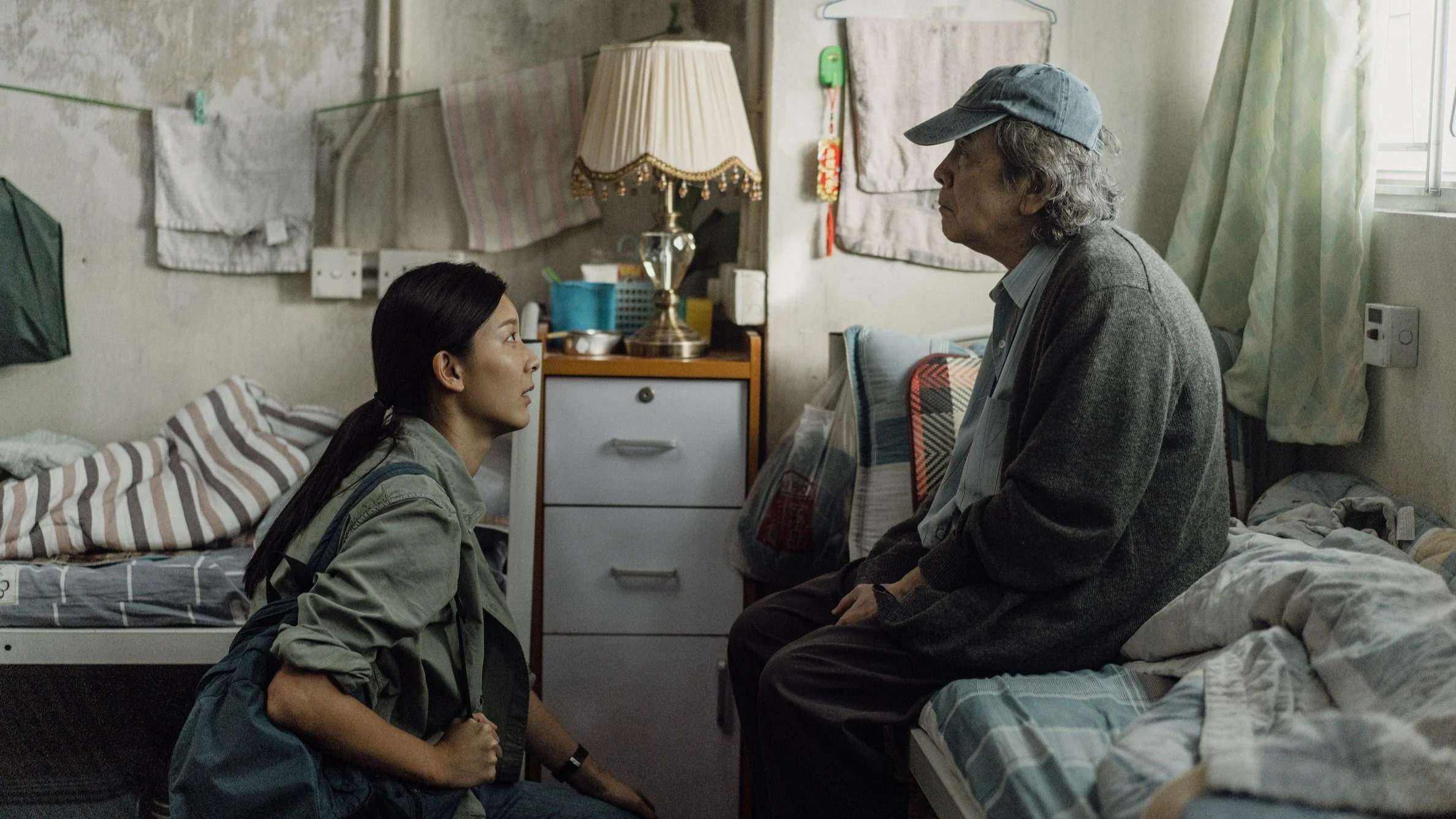In Broad Daylight
A real-life scandal in a Hong Kong care home forms the basis of Lawrence Kan’s outspoken social drama.
For reasons that I will explain this film is unusually difficult to assess. In Broad Daylight is the work of the Hong Kong director Lawrence Kan who also contributed to its screenplay sharing that credit with Tong Chui Ping and Fung Li. The film is concerned with the appalling conditions that exist in many residential care homes where inmates are exploited in more ways than one. In this instance we have a drama which focuses on one such establishment, the Rainbow Bridge Care Home, which is run by Cheung (Bowie Lam). It transpires that he had earlier done comparable work in other such places but that his previous positions had been terminated for good reason. That this comes to light is due to the Rainbow Bridge Care Home being investigated by a journalist name Kay (Jennifer Yu). She works for a Hong Kong newspaper and has managed to enter the home by claiming to be the granddaughter of one of its inmates, Tong (David Chiang). Like many of those living there he is elderly but this is also a place which handles much younger people who are mentally handicapped.
Although issues of this kind are all too prevalent in many countries, In Broad Daylight has come about because the situation is particularly bad in Hong Kong. There the number of care homes is such that families seeking to find a place for someone in need have to accept whatever is available. Not only have poor working conditions led to staff shortages in these homes, but the Social Welfare Department which licenses them often fails to prosecute known failings and the system is in any case made worse by long waiting lists. In addition, while licenses are usually required, some homes for the elderly are given a certificate of exemption, a system which can contribute to the lowering of standards.
In these circumstances it may well be brave of Kan and his colleagues to have created this drama which is stated to be based on specific events that occurred back in 2015 but which is certainly widely critical of the authorities. Those familiar with life in Hong Kong will be better able to appreciate just how accurate the film’s portrayal is. Much of it certainly seems persuasive but even so the opening scenes do convey a sense of a filmmaker piling it on. Thus, when Kay arrives at the Rainbow Bridge Care Home the very first thing she sees is elderly patients writhing on their beds and electric shock treatment being applied to control them. Bullying is also clearly apparent and it extends to a scene in which a youth named Ming (Henick Chou) is subjected to a stapler being used on his arm. The confined space in the rooms is all too believable (Tong is seen to share his with another elderly man, Shui played by Fung Woo), but some of the details however valid seem too consciously played up for their dramatic impact. We are aware too that, given the abuses that are going on, it is most unlikely that Cheung would so readily accept the frequent presence in the home of Kay. She claims not to have visited earlier because she had been living abroad but is of course pretending to be Tong's granddaughter. Much less senile than he appears to be, Tong conveniently chooses to accept her as a relative despite knowing that she is not. Her uncontrolled access is the more surprising since it eventually emerges that Cheung is a paedophile and we witness how he imposes himself on one of the young mentally handicapped inmates, Ling (Rachel Leung).
In a generally able cast, Jennifer Lu, the lead actress, is a strong central presence and for the first hour or so the narrative builds naturally as Kay and a fellow reporter, Leung (Leung Chung-Hang) gradually uncover evidence that will expose what has happened. It should also be acknowledged that the storyline readily lends itself to comments on another issue: the extent to which newspapers are losing out to other media in a way that arguably threatens the future of investigative journalism. However, when images are obtained that support the case against Cheung and a court hearing follows, the story seems to be reaching its climax yet this proves not to be the case. The images prove insufficiently explicit and the charge against him is dropped. That is a drawback for the film itself since, although it eventually reaches an effective conclusion, the last quarter is decidedly episodic. In passing it also seems quite bizarre that the film should be bookended by a recording of ‘We’ll Meet Again’ - it’s not sung by Vera Lynn but it is performed in English!
Judge In Broad Daylight simply as a drama providing a night out at the cinema and the verdict has to be that in view of its less persuasive elements it is only moderately successful. However, depending on how challenging its material is seen to be in Hong Kong today, it is quite possible that it deserves respect for its brave stance. Those in the know might well assert that, by choosing to highlight social concerns that remain challenging despite originating some years ago, Kan’s film deserves more credit than I have given it.
Original title: Bak yat ji ha.
MANSEL STIMPSON
Cast: Jennifer Yu, David Chiang, Bowie Lam, Rachel Leung, Woo Fung, Leung Chung-Hang, Henick Chou, Pak-Hong Chu, Mimi Kung Chi-Yan, Charm-Man Chan, Bo Pui-Yue, Hee Ching Paw, Anna Ng.
Dir Lawrence Kan, Pro Derek Yee, Screenplay Fung Li, Tong Chui Ping and Lawrence Kan, Ph Meteor Cheung, Pro Des Albert Poon Yim-Sum, Ed Wai-Lun Lo, Music Wan Pin Chu, Costumes Noodle Chan Hau-Sin.
Lok Tin films Production/One Cool Film Production-Central City Media.
106 mins. Hong Kong. 2023. US Rel: 8 December 2023. UK Rel: 19 January 2024. Cert. 15.


